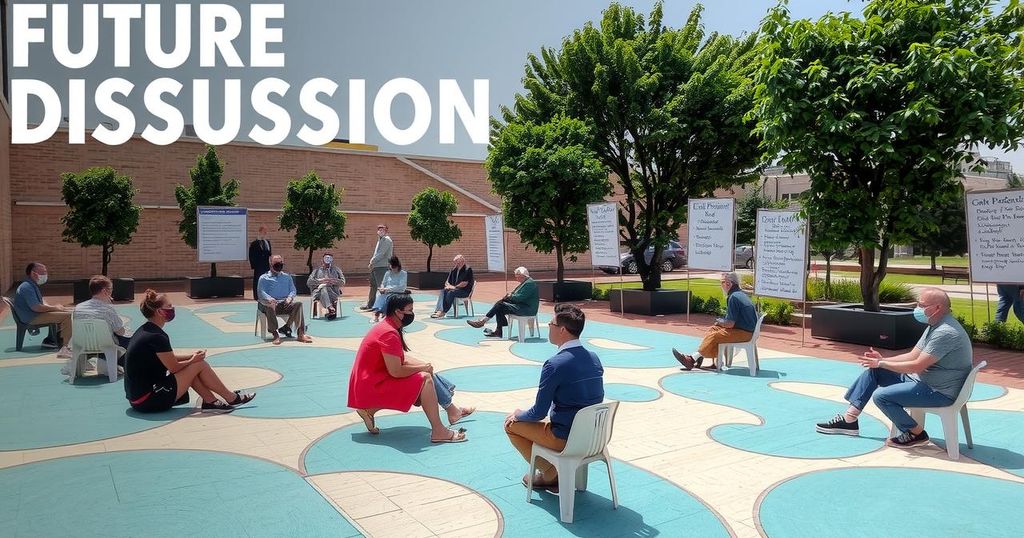COP29 in Azerbaijan concluded with great dissatisfaction regarding climate finance commitments while over 300 political prisoners remain detained. The repression of civil society has intensified, complicating efforts to include diverse voices in climate discussions. Key figures in environmental advocacy face ongoing persecution, raising serious questions about the integrity of future international agreements on climate action, especially as authoritarian regimes continue to host COP events. A potential shift in representation at COP30 aims to prioritize environmental human rights.
The recent COP29 climate conference in Baku, Azerbaijan, concluded with significant dissatisfaction among advocates for climate action and civil liberties. Despite the presence of over 300 political prisoners in the country and an alarming 243% increase in political detentions since February 2023, the discussions at COP29 yielded little in the way of concrete commitments towards climate finance or phasing out fossil fuels. Reports indicate that Azerbaijan’s government has intensified political repression, aiming to silence dissent and undermine civil society. Florian Irminger, President of the Progress & Change Action Lab, highlighted the unprecedented levels of repression in Azerbaijan as detrimental to meaningful climate discussions. Countries with repressive regimes, including Azerbaijan, have historically marginalized environmental defenders in negotiation processes, compromising the integrity and fairness of such international forums.
Despite recent advances in climate justice advocacy, such as the Climate of Justice Initiative launched prior to COP29, key figures like Anar Mammadli continue to face harassment and imprisonment due to their environmental activism. This trend of silencing voices critical of governmental policies is not unique to Azerbaijan, as instances in Qatar, Poland, Egypt, and the UAE illustrate similar challenges faced by civil society in climate negotiations. As the world watches how Azerbaijan will navigate its responsibilities following COP29, concerns grow over public engagement and advocacy rights within the country. Irminger underscores the necessity for the United Nations to take a firm stand against these abuses to ensure that COP conferences remain forums for all voices, not just those of governments pursuing their interests.
Looking ahead, COP30 in Brazil presents an opportunity to include more civil society representatives and Indigenous people in climate discussions, amid hopes of reevaluating the criteria for future conference hosts. It is imperative that global climate goals are upheld by prioritizing the input of those who are most affected by climate change—environmental human rights defenders. Global Citizen encourages all individuals to engage actively in civil rights and climate advocacy efforts to foster a more inclusive approach to climate action.
The article addresses the serious implications of hosting international climate negotiations like COP29 in countries with a record of human rights violations. Specifically, it highlights the increasing number of political prisoners in Azerbaijan, the rise in repression against civil society in the lead-up to the conference, and the general trend of excluding environmental defenders from these vital discussions. It provides context for the systemic challenges faced by civil society in oppressive regimes that prioritize fossil fuel interests over genuine climate justice. The article also reflects on past occurrences in similar countries and expresses concern for the future of climate negotiations if such practices continue.
In conclusion, COP29 has illuminated the troubling intersection of climate policy and authoritarian governance, particularly in Azerbaijan, where civic space is severely restricted. The increased repression of environmental activists raises alarms about transparency and inclusivity in climate negotiations. The case of Azerbaijan serves as a cautionary tale for future COPs, emphasizing the need for the United Nations Framework Convention on Climate Change to enforce standards that protect human rights at these critical conferences. Without a concerted effort to amplify the voices of civil society, global climate objectives risk being undermined.
Original Source: www.globalcitizen.org






